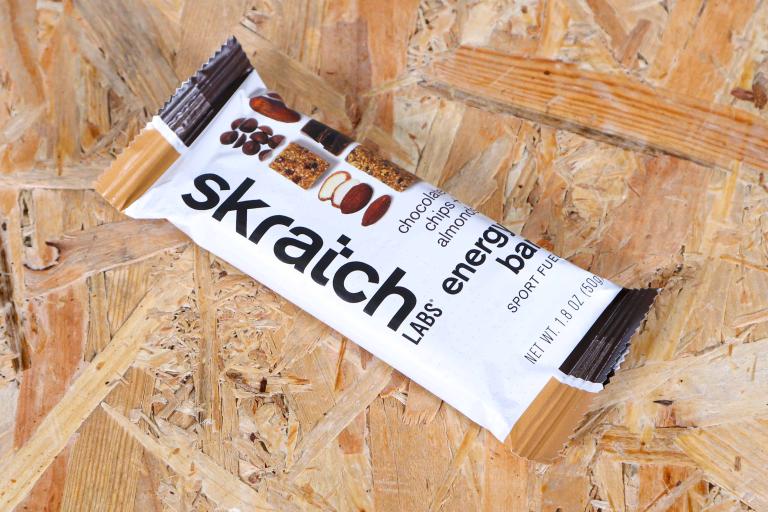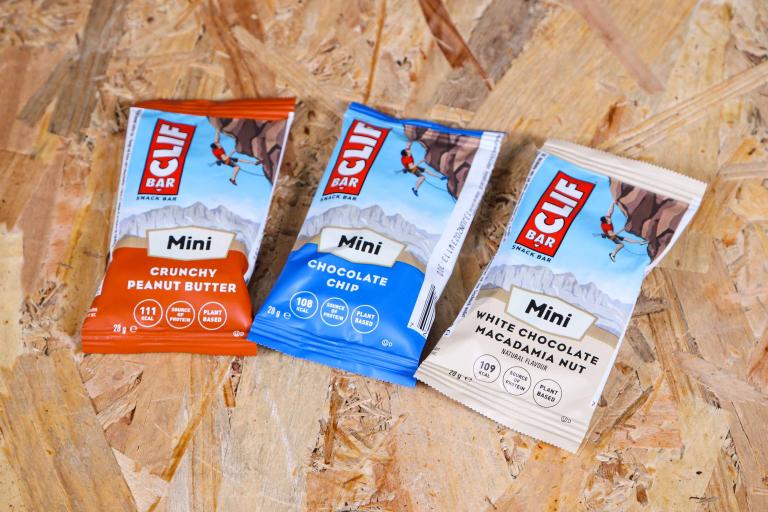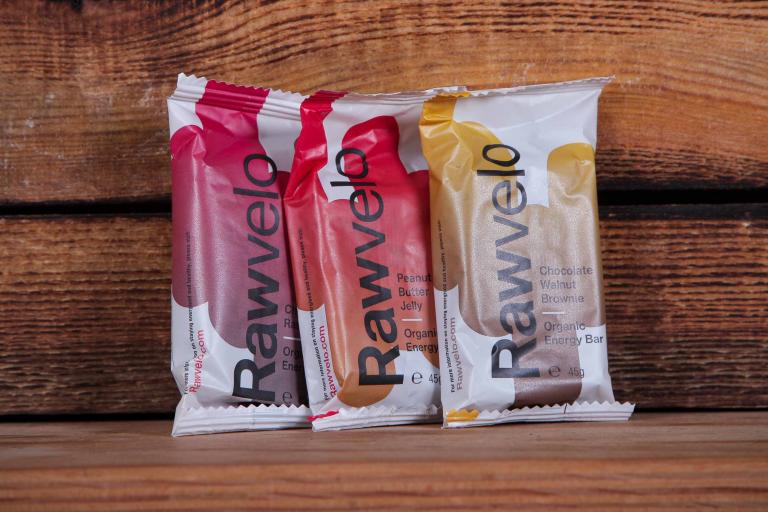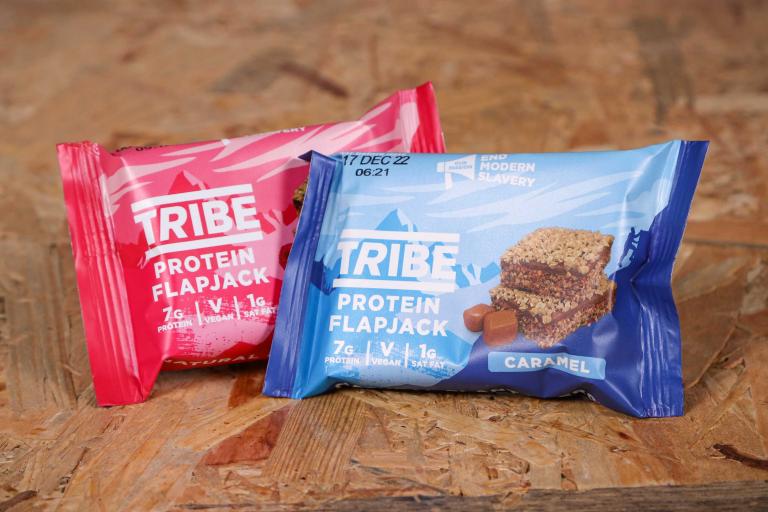- News
- Reviews
- Bikes
- Accessories
- Accessories - misc
- Computer mounts
- Bags
- Bar ends
- Bike bags & cases
- Bottle cages
- Bottles
- Cameras
- Car racks
- Child seats
- Computers
- Glasses
- GPS units
- Helmets
- Lights - front
- Lights - rear
- Lights - sets
- Locks
- Mirrors
- Mudguards
- Racks
- Pumps & CO2 inflators
- Puncture kits
- Reflectives
- Smart watches
- Stands and racks
- Trailers
- Clothing
- Components
- Bar tape & grips
- Bottom brackets
- Brake & gear cables
- Brake & STI levers
- Brake pads & spares
- Brakes
- Cassettes & freewheels
- Chains
- Chainsets & chainrings
- Derailleurs - front
- Derailleurs - rear
- Forks
- Gear levers & shifters
- Groupsets
- Handlebars & extensions
- Headsets
- Hubs
- Inner tubes
- Pedals
- Quick releases & skewers
- Saddles
- Seatposts
- Stems
- Wheels
- Tyres
- Health, fitness and nutrition
- Tools and workshop
- Miscellaneous
- Buyers Guides
- Features
- Forum
- Recommends
- Podcast
review
 Multipower Multicarbo hi-energy jelly
Multipower Multicarbo hi-energy jelly£1.29
VERDICT:
Good mix of fast-acting and slow-release energy, served up in an unusual format. Worth a try if you don't get on with some other energy products
Weight:
50g
Contact:
www.multipoweruk.com
At road.cc every product is thoroughly tested for as long as it takes to get a proper insight into how well it works. Our reviewers are experienced cyclists that we trust to be objective. While we strive to ensure that opinions expressed are backed up by facts, reviews are by their nature an informed opinion, not a definitive verdict. We don't intentionally try to break anything (except locks) but we do try to look for weak points in any design. The overall score is not just an average of the other scores: it reflects both a product's function and value – with value determined by how a product compares with items of similar spec, quality, and price.
What the road.cc scores meanGood scores are more common than bad, because fortunately good products are more common than bad.
- Exceptional
- Excellent
- Very Good
- Good
- Quite good
- Average
- Not so good
- Poor
- Bad
- Appalling
The Multipower brand is perhaps better known in the world of body-building than among speed and endurance sports, but alongside the jars of muscle-enhancing powder, various carb-based energy products are on offer, including this Multicarbo Hi-Energy Jelly.
As the name implies, it's a jelly, not a gel, and if you dislike the liquidy nature of most energy gels, you might prefer chewing on this stuff. It has a firm consistency - like the gelatine blocks you make kids' party jelly from.
It's not squeezable like SIS or ZipVit gels, or virtually pourable like High5 gels. It much more like Cliff Bar ShotBlox in consistency - although ShotBlox break off in chewy cubes, whereas the Multicarbo Hi-Energy Jelly comes in one big lump in a sachet.
And therein lies a problem. With the firm consistency, it's quite hard to open the sachet and squeeze out the jelly when you're riding - especially with one hand. It's easier if you use both hands, but many riders have to stop to do this.
Once the stuff is in your mouth, the taste is sweet and slightly acidic, and the texture is chewy - again, just like the stuff you make kids' party jelly from. The only available flavour is orange.
A 50g sachet delivers 120kcal of energy, coming from 29g of carb. There's no protein component (and only tiny amounts of fibre and fat) so this product is not suitable for events over about 2 or 3 hours, when you need a bit of protein as well.
The carb comes from two main ingredients: sucrose and isomaltulose. The former is effectively straightforward sugar - it gives you a burst of energy but doesn't last long. The latter was a new one on me, but it turns out to be source of glucose and fructose with a low GI - ie your body absorbs it gradually, which is what you need for long bike rides.
Also in the mix is some flavouring and colouring, plus a dash of sodium benzoate and potassium which helps replace body minerals lost through sweat.
So it's unusual stuff, but does it work? Yes. I've used sachets of Multicarbo Hi-Energy Jelly on a couple of training rides, and they definitely provide a boost and a sustained supply of energy for between 30 and 60 minutes. Mixed with drink and energy bars, they've kept me going for 80 miles or more.
But do they work any better than 'normal' gels? I don't think so. No better, and no worse. At the end of the day, it's a similar type of energy, but delivered in a different format.
However, if you struggle with gels, but want an easily digestible source of energy for long bike rides, this product could be the answer to your needs. On the other hand, you might think it's a cynical marketing ploy to fill a gap that wasn't really there in the first place.
In my view, Multicarbo Hi-Energy Jelly is well worth a try. If you like the mix of boost and slow-release energy it provides, combined with the firm consistency, then a few sachets might be a good addition to your nutritional armoury. As with all energy products, test them in advance on a training ride, before necking several for the first time during an important race or sportive.
A single sachet of Multicarbo Hi-Energy Jelly costs £1.29. A box of 24 is around £30. On a blunt carbs-per-penny scale, this does not compare well with some gels from other manufacturers, and so it's not great value. But if you find gels too runny and bars too hard, then this price might be worth paying, and Multicarbo Hi-Energy Jelly might be just the thing you're looking for.
Verdict
Good mix of fast-acting and slow-release energy, served up in an unusual format. Worth a try if you don't get on with some other energy products.
road.cc test report
Make and model: Multipower Hi-energy Jelly Bar
Size tested: 50g
Tell us what the product is for, and who it's aimed at. What do the manufacturers say about it? How does that compare to your own feelings about it?
The information on the Multipower website is minimal. Just some bullet points:
28g of carbs per serving
of which 5g Isomaltulose
<0.1g of fat and Sodium
120kcal per serving
There are no elaborate claims or promises, which is good, but some more information would be useful.
Rate the product for performance:
8/10
Rate the product for value:
6/10
On a blunt carbs-per-penny scale, this product is not especially good value, so it's marked down a tad here. But if you find gels too runny and bars too hard, then you might find this this product very useful and so cost might not be a prime consideration.
Tell us how the product performed overall when used for its designed purpose
Multicarbo Hi-Energy Jelly definitely works, and many riders will appreciate the mix of boost and slow-release energy. It's a carb-only product though so not suitable on its own for events longer than 2 or 3 hours.
Tell us what you particularly liked about the product
The jelly's unusual consistency.
Tell us what you particularly disliked about the product
Getting it out of the sachet when riding the bike.
Did you enjoy using the product? Yes
Would you consider buying the product? Yes
Would you recommend the product to a friend? Yes
About the tester
Age: 50 Height: 5ft 10 / 178cm Weight: 11 stone / 70kg
I usually ride: an old Marin Alp My best bike is: an old Giant Cadex
I've been riding for: Over 20 years I ride: A few times a week I would class myself as: Experienced
I regularly do the following types of riding: touring, club rides, sportives, general fitness riding,
Latest Comments
- BIRMINGHAMisaDUMP 1 sec ago
So the collective noun for a group of cyclists is 'a hoard'?
- BIRMINGHAMisaDUMP 8 min 16 sec ago
Bro needs to be in primary position.
- Mathemagician 9 min 37 sec ago
To answer your question, yes you can sometimes feel the difference. Built a set of wheels for a friend and he installed them with new lightweight...
- Geordiepeddeler 6 hours 48 min ago
Cycling infrastructure does not force drivers to break the law, drivers are the reason they break the law, no one else.
- chrisonabike 7 hours 1 min ago
Ah but taking pictures of things to defy the man (avoid a fine) is righteous. Taking pictures of people to grass on them to the cops (perhaps...
- jaysa 10 hours 11 min ago
As a woman, this works great for me! My chain broke once, and a kind guy stopped with a chain breaker and sorted it all out for me. We stopped at a...
- andystow 11 hours 3 min ago
Same. I also have gone through a bunch of their tyres, and only the extralight disappointed (torn sidewall) but the standards are fantastic....
- chrisonabike 13 hours 27 sec ago
Indeed - but it's no more inconsistent than our current road design - very often UK high streets are "for shopping" and also a busy through route....
- mike the bike 14 hours 30 min ago
If you ask the world's leading economic commentators how many people have been rescued from abject poverty by capitalism the average answer would...




Add new comment
2 comments
Thanks for the feedback, Simon. I think you're right, the jury may be out on the protein question - there are studies that show it is useful for long rides, and studies that show it isn't. From my personal point of view I find a carb-protein mix helps me cover the second half of a long tough sportive better than carb alone. There may well be other riders who find the opposite approach works for them. I guess it's horses for courses, which is why I recommend always trying nutrition products on a training ride first, before taking anything untested during a long race or sportive.
Thanks again for the comments
cheers
David
Hartley's Blackcurrant Jelly 135g: 400kcal and 93g CHO per 100g for the princely sum of 35 pence.
Ingredients: Glucose-Fructose Syrup, Sugar, Gelatine, Citric Acid, Acidity Regulator: Sodium Citrates, Flavouring, Acetic Acid, Colour: Anthocyanins.
I'm not sure you want a low GI energy source during the ride, more important that is digested quickly. The benefit of mixing maltodextrin & fructose, as Torq and others now do, is because the research has shown that it allows a greater rate of absorption than maltodextrin alone.
The claimed benefit of adding protein to a carb drink during longer rides is disputed.
http://well.blogs.nytimes.com/2010/11/10/do-protein-sports-drinks-improv...